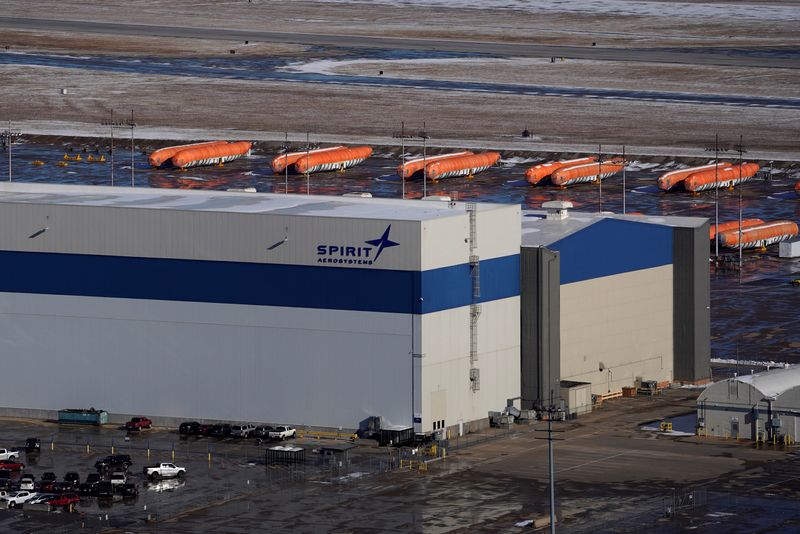By Abhijith Ganapavaram
(Reuters) -Spirit AeroSystems Holdings Inc said on Tuesday it was experiencing disruptions in supplying parts for the industry's top-selling wide-body jets, the Boeing (NYSE:BA) 787 and Airbus A350, due in part to labor shortages.
Spirit, one of the industry's biggest suppliers, said the process of retrofitting stored fuselages for Boeing Co 's 787 jets was taking longer than expected as the process requires more labor than usual.
The U.S. Federal Aviation Administration last year cleared the way for 787 deliveries to resume after approving Boeing's inspection and retrofit plan needed to meet certification standards in July.
Spirit said it found the new process for the 787 required more labor per unit.
"With this new fit and finish, the set of requirements in the build process, is resulting in some more hours, which is creating some further drag in terms of the overall 787 program," Spirit CEO Thomas Gentile said during an investor call.
"We now believe we have incorporated what is needed for the 787 fit-and-finish requirements in the new-build process and rework," Gentile added.
On Airbus' A350 program, Spirit said disruptions continue to drive cost pressures.
"The transfer of parts and the ramp-up of production put the program behind schedule. We have initiated our recovery plan. However, recovery costs included expedited shipping of components to support our customers' production are resulting in additional forward loss," Gentile said.
Spirit has targeted producing shipsets between 40 and 45 this year for the 787 program and about 60 units for the A350. A shipset refers to sets of structural fuselage components produced or delivered for one aircraft.
The aerospace industry is struggling with labor and parts shortages, which has capped jet production at planemakers Boeing and Airbus SE (OTC:EADSY).
High levels of attrition were seen even in new hires, Spirit executives said.
Shares of the company rose 7.4% in mid-day trade as the company outlined a goal of producing 420 shipsets this year for the lucrative 737 program, higher that what it produced in 2022.
However, it reported a higher-than-expected cash burn for the fourth quarter.

Suppliers such as Spirit have been left holding on to more parts due to a fractured supply chain, hurting cash flow and crimping their recovery from the COVID-19 pandemic.
Spirit reported a quarterly cash burn of $66 million, compared with analysts' estimates of $42.64 million, according to Refinitiv data.